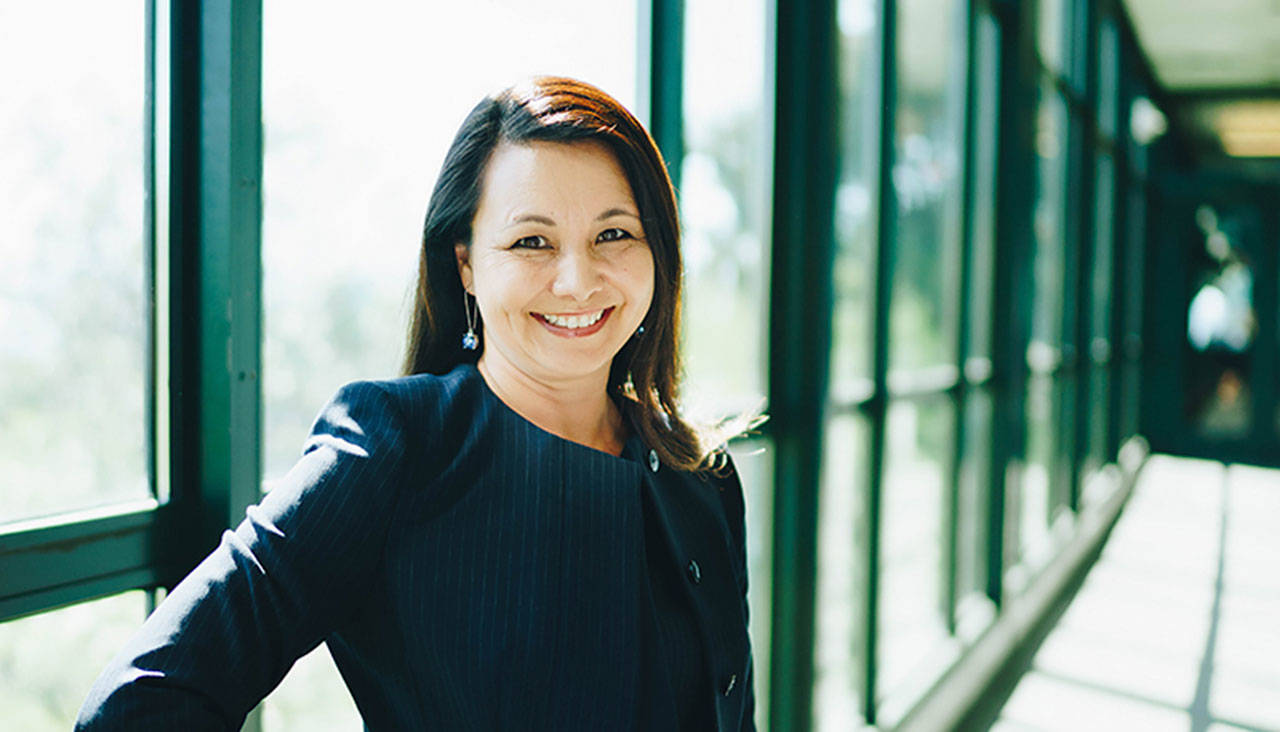By The Herald Editorial Board
The various heritage recognition months and days throughout the year — such as Native American Heritage Month this month and Native American Heritage Day this Friday — offer opportunities to recognize past and current contributions by members of those communities.
In Snohomish County and Washington state we can recognize the accomplishments of leaders such as:
Retired state Sen. John McCoy, who, in addition to his years of leadership with the Tulalip Tribes, advocated for educational, environmental and other issues for tribal members and all residents during 17 years of service as a legislator in the state House and Senate until his retirement earlier this year.
Justice Raquel Montoya-Lewis, a member of Pueblo Isleta and descendent of the Pueblo of Laguna in New Mexico, who was appointed to the Washington state Supreme Court in 2019 and won election to the court earlier this month, the first Native American to serve on the state’s highest court.
And Tonya Drake, chancellor of WGU Washington since 2018, whose father is a member of Vancouver Island’s Cowichan First Nations tribe. Drake is the first Native American chancellor for WGU Washington, the public online university established in 2011 by the state and Western Governors University. Prior to joining WGU, Drake served as vice president for college relations and advancement at Edmonds Community College, now Edmonds College.
As well as recognizing past and current contributions, such observances of heritage also are an opportunity to look forward. For Drake that means working to increase the enrollment of Native American students in higher education programs that will help develop future leaders in the full range of career fields, including WGU’s programs in education, health care, business and information technology.
Greater encouragement of young Native Americans and focus on post-high school education is needed. Nationally, about 19 percent of 18- to 24-year-old Native Americans are enrolled in college, compared to about 41 percent of the same age group, according to the Postsecondary National Policy Institute. Of those who have enrolled, 41 percent of Native American students attending four-year colleges graduate within six years, compared to 62 percent of all students. And as of 2019, 25 percent of Native Americans 25 or older had an associate degree or better, compared with 42 percent nationwide.
Drake, early in her own career saw this need, working with students from the Yakama Nation, many of them the first of their families to attend college. The students from five high schools had the talent and ability for college, Drake said, but had to navigate challenges with admissions standards, access to resources and financial aid.
Among the obstacles that Native American students have to overcome, Drake said, is the lack of access to broadband internet on many reservations and in rural areas, but even students in urban areas can struggle when internet access is available but not necessarily affordable.
There are efforts at the state and national level to expand internet access to rural and tribal areas.
Legislation in Congress, co-sponsored by Sen. Maria Cantwell, D-Wash., Bridging the Tribal Digital Divide Ac,t would help address that need. The act, which passed this week out of the Senate Committee on Indian Affairs, would streamline applications for federal grants for internet infrastructure on tribal lands, provide funds for development through the FCC and USDA, and set up a pilot program.
WGU also has established a $1 million scholarship fund that will provide WiFi hotspots, broadband access, computers and other equipment for students who are without internet access.
But a more general need, Drake said, stems from the “desert” of higher educational opportunities, especially those close to the communities where Native students live. Washington state has one tribal college, the Northwest Indian College on the Lummi Indian Reservation near Bellingham, although there is outreach to those students among the state’s community colleges, their branch programs and regional universities.
“We as a higher education industry should be able to bring education to them so they can stay within their communities, within their families,” Drake said.
WGU Washington’s online program is well-suited for bringing education into the homes of students. WGU’s accredited competency-based programs assess what students know before they begin online classes, which they then can complete at their own speed. Students work with a number of faculty during their studies, including student mentors who offer guidance throughout the degree program; course mentors who are experts in the subject matter; program faculty who develop the courses and curriculum; and evaluators who assess student knowledge and grade assignments.
WGU doesn’t offer associate degree programs; its programs are intended for those who have earned an associate’s degree and are looking to complete bachelor’s and master’s degrees. But Drake said WGU continues its work to expand access for all students by developing partnerships with other colleges. Most recently WGU completed an agreement with Northwest Indian College to accept its credits so students can continue their study at WGU. In addition, the online college has established a scholarship fund for NIC students enrolling at WGU.
“We’re very excited about that; that we’re able to do this during American Indian Heritage Month is even more exciting to us,” she said.
Beyond the practical steps of better internet access and financial aid, there also is value in young adults witnessing the example of leaders who came from circumstances similar to their own, including Sen. McCoy, Justice Montoya-Lewis and Drake.
“There’s some opportunity for us there,” Drake said, “to encourage people to be bold and courageous and continue their education, especially during a pandemic, to be ready to come out of this with additional skills, new skills they can use.”
Talk to us
> Give us your news tips.
> Send us a letter to the editor.
> More Herald contact information.

























